Brexit-proof your life: 20 ways to be pragmatic as we exit the EU
It may take more than an international driving licence and a garage full of loo roll to survive a hard Brexit, but it’s a start. Sean O’Grady prepares for the worst

With the best will in the world, and there may be a remarkable shortage of that in the coming months, a chaotic Brexit will make reliable delivery of a huge variety of items more tricky ( Isobel Orton )
In the two and a bit years since the EU referendum, successive waves of optimism and pessimism have crashed across the nation as hopes for an acceptable outcome rise and fall. We still don’t know what will be decided at upcoming “crunch” European Union summits – and the possibility remains that, even if a healthy dose of goodwill enables some kind of agreement to be cobbled together, Brexit will be messy.
Whatever else, undoing a half-century of integration is bound to cause some distortion. So to be prudent, you might want to “Brexit-proof” your life, just in case. Here is my far from exhaustive guide to some of the things you might (or might not) want to consider as departure day approaches.
1. Stock up on loo roll
What could be more essential to civilised life? Right now your local supermarket will happily sell you as many multipacks of Andrex (other leading brands are available) as you can transport home – but after 29 March 2019 there is a risk they may need to ration the supply. You see, some 50 per cent of the wood pulp used to make toilet rolls in UK factories comes into the country on lorries from Sweden, an EU member state. When the lorries get stuck on some ferry somewhere, the factories will soon run out of raw material. They could make up the shortfall with the wood pulp that comes in from Brazil, although apparently that stuff isn’t as comfortable to use. You have been warned.

Raab: Those fearing Brexit hit to car industry should show ‘mettle’
2. Order your new car now
Around 85 per cent of the UK’s new car market is accounted for by imports, and there are few vehicles you can buy that don’t have at least some European Union content – including some famous British brands. The Mini, for example, has a crankshaft that crosses the Chanel more than a dozen times as it reaches completion. The Jaguar E-Pace, an excellent sporting SUV, is made in Austria, while only the Astra from the Vauxhall range is made here – and again, it contains EU parts. On the other hand, all of BMW’s four-cylinder engines for the likes of the 3 Series are made in Birmingham…
Disruption to such automotive supply chains will make delays inevitable for virtually any brand. Tariffs on new car imports, if imposed by the UK, may add to the list price – if you can source the vehicle in the first place. Order now from stock and relax.
How to Brexit-proof your life
By the by, if you own a Fiat, Kia, Volkswagen, Nissan, Toyota, Skoda, Seat, Renault, Peugeot, Citroen, Vauxhall, Ford or virtually any other brand with parts from the EU, which includes “British” brands such as Mini, Bentley and Jaguar, then you might also want to buy a few spares. Just in case.
3. Apply for an international driving permit
This is fairly crucial if you want to be able to drive legally “over there”.
If you are fond of a proper brie, to offer a further random example, you know what to do...
One of the main benefits of EU membership we take for granted is the Europe-wide recognition of national driving licences. This could conceivably end if we “crash out” of the club. An international driving permit will allow you to drive legally throughout the EU; you’ll need to apply for it personally at a post office, for a reasonable fee of £5.50.
4. Lay down some French wines, German salami, Italian pasta, Polish vodka, Belgian chocolates, Spanish manchego, Greek olives…
With the best will in the world, and there may be a remarkable shortage of that in the coming months, a chaotic Brexit will make reliable delivery of these sorts of treats more tricky. There are British alternatives to many of them but not all, obviously. The commercial British olive, for example, is yet to make its appearance. If you are fond of a proper brie, to offer a further random example, you know what to do (no offence Somerset). You can freeze harder cheeses and stick some pickled or “brined” cheeses in the pantry. The delicatessen then – such a continental word – is your next shopping destination. You’ll at least enjoy it, but try not to eat it all at once. Get stockpiling.
Replenish your continental wine stocks (Rex)
5. Make sure your health insurance covers trips to the EU or EEA
The European Health Card and smooth reciprocal arrangements across the EU for member citizens in need of care could disappear. The safest solution might be to apply for some health insurance that will cover you in the EU for holidays and business trips.
6. Review your investments
Never a bad idea in any case. If you’re lucky enough to own some, including a (money purchase) pension pot, then be ready for the volatility a chaotic Brexit will bring. Currency movements will probably mean dollar, euro and other foreign currency assets will rise in value; you may also find changes in the tax treatment of your stocks, shares, bond and real estate as the UK and EU settle down to their new, less convergent relationship.
Fears of a collapse in sterling may be exaggerated but it is something you need to be aware of
Without going full Project Fear II, there may also be sharpish trends in inflation, interest rates and tax that you might not have foreseen. A change in the Bank of England bank rate, for example, will influence gilt and, thus, annuity rates for people who purchase one with their retirement pot (though of course you don’t have to go down the annuity route under the newish “pension freedoms”). This could be favourable, or not, depending on what happens, but you need to understand what might happen, so far as you can. As ever, do your own research and seek independent financial advice.
7. What, the gîte has to go?
The timeshare pad in Spain, the cute little conical cottage in Puglia, beach apartment in Cyprus, bolthole in Paris… all favourite British property investments, and hitherto unthreatened by discriminatory taxation or property laws – but perhaps no longer.
There might also be some effect on the popularity of your place if you let it out to UK holidaymakers, many of who will obviously be stuck in Blighty eating the cheese and wine reserves they’ve built up (see point 4).

Holiday homes abroad will be affected by Brexit... but will you gain or lose out? (Getty)
Post-Brexit, there may be less certainty that British citizens, resident or not, will enjoy the exact same property rights and tax equality they do now. On the other hand, if the euro, Bulgarian lev or Croatian kuna strengthens against the pound, other things being equal, then the sterling-equivalent value of your real estate may go up.
There again, fears of a collapse in sterling may be exaggerated but it is something again you need to be aware of.
8. Double-check the family tree
Your ancestry, and one or two other conditions, might help you apply for a passport of another EU member state, should you want one.
Don’t forget that although dual citizenship is permitted in the UK, it isn’t available in all EU states, so you need to check; if necessary, make a choice.
Usually some form of parentage qualification can deliver a new passport from an EU nation – though a substantial investment can also secure one (see point 6). You will usually need to register your birth, even if it was in Britain, with the country you wish to become a citizen of. Here are a few of the basics to get the ball rolling (though there is much devilish bureaucracy in the detail so beware)...
Watch more
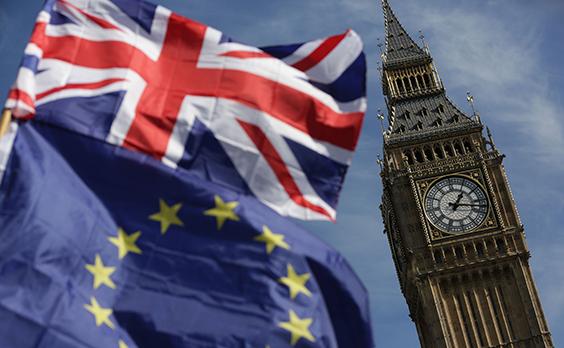 Surge in British people obtaining EU citizenship, new data reveals
Surge in British people obtaining EU citizenship, new data reveals
Italian citizenship: by being born to an Italian parent and, in some circumstances, via an Italian grandparent. Or by naturalisation – at least 10 years’ residency.
Irish citizenship: yours if some of your parents or grandparents were Irish or, under some circumstances, by marriage to an Irish citizen. Naturalisation by residency will also get you an Irish passport.
Spanish citizenship: for British expats it is possible to obtain Spanish citizenship via residency, but you will have to surrender your British citizenship – toss a euro for it. Alternatively, once you have lived in Spain for five uninterrupted years, you can apply for an “EU long-term residence permit”, which enables you to work and live in Spain on the same basis as Spanish citizens. You can also apply if you have a Spanish father or mother.
Cypriot citizenship: been married to a Cypriot for at least three years? Time to celebrate! Cypriot parentage will also do the trick, as will “citizenship by investment” – a property worth at least €500,000.
It might be prudent to make sure your next prescription gets filled in good time
Maltese citizenship: naturalisation/residency for five years should do it. But here too there is a chance of flashing the cash via the Malta Individual Investor Programme – at least €500,000 in various combinations of Maltese government bonds, and the National Development and Social Fund. Five years of marriage to a Maltese citizen is another route.
Most EU and EEA countries (eg Norway, Switzerland) are members of the Schengen scheme, meaning no border checks in any case for EU citizens.
9. Order your European-made fridge, washing machine, dishwasher…
Much the same arguments apply to consumer goods as they do to cars, though the prevalence of Chinese-made products (sometimes with European brand names) means that the possible delays and inconvenience are somewhat less for this class of goods. However, if you really desire a German-made Miele washing machine you might be wise to make a move on one now.
10. Buy your foreign currency now
I don’t have a Brexit crystal ball any more than anyone else but it seems reasonable to conclude that a hard Brexit, the nearer it gets, could well bring about a hefty depreciation of sterling – as happened the morning after the 2016 referendum, when the pound lost about 15 per cent of its external value (though it did gradually recover). Then again, whenever there is a wave of optimism about the talks, sterling tends to rise. The pound would be expected to slide against all the major currencies in an unexpectedly chaotic scenario, so if you wish to be cautious you could get your euros, dollars, roubles and rupees in now.
11. Stock up on medicines
Assuming they have a long shelf life, that is. This is one of the most vexed of all the post-Brexit questions, about which we have heard a lot from politicians. All one can say now on the question of imported medicines is that they will, under UK law, be OK to use in Britain if they’re already EU approved, as we will adopt all the European Union regulations from day one of Brexit. However, like so many other goods, there may be delays in transportation, and it might be prudent to make sure your next prescription gets filled in good time. The UK has a competitive pharmaceuticals sector, for now there is a reasonable chance that your pills and potions can be sourced by the pharmacy. Keep a weather eye open for updates.
Watch more
 UK’s biggest insulin supplier stockpiling four-month supply
UK’s biggest insulin supplier stockpiling four-month supply
12. Au pairs, tenants and employees: let them go now or hang on for dear life
Without a legally sound withdrawal agreement, the rights and status of EU citizens living and working in the UK will need to be clarified, and there is no sign of that yet. Some may decide to leave the UK, even after many years here, which will inevitably cause great disruption. You may therefore wish to make some contingency arrangements of your own if, say, you rent a house to a Slovak family, have a French au pair or employ workers from Poland. The short story is that they may be hard to replace.
13. Take advantage of “the exciting opportunities” offered by Brexit
Joking aside, there will be some potential benefits for the new “global Britain”. If you’re the entrepreneurial type, you might well want to seek out new trading opportunities in China or India, as (or if) tariffs and other restrictions that are now levied on goods and services in either direction are lifted. That could happen as a result of unilateral UK action or, in the longer run, through the kind of ambitious trade deals ministers talk so frequently about.
All in all, now may be a good moment to start that business advising Indian students about how to get a visa and apply for a course at a British university. Provided of course the government finds such an arrangement with India that is compatible with its migration targets.
Brexit threatens life on the Irish border: in pictures
Show all 15
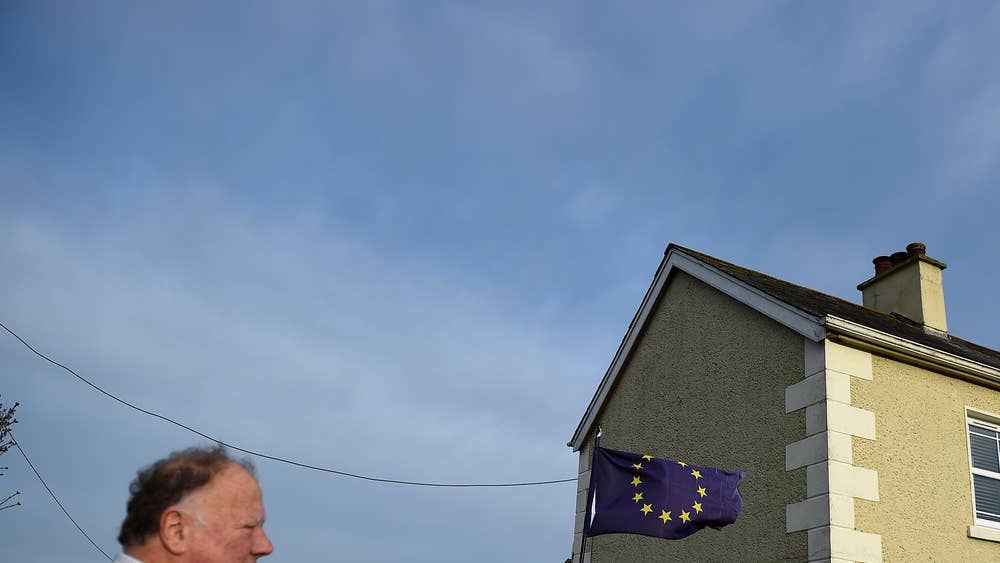

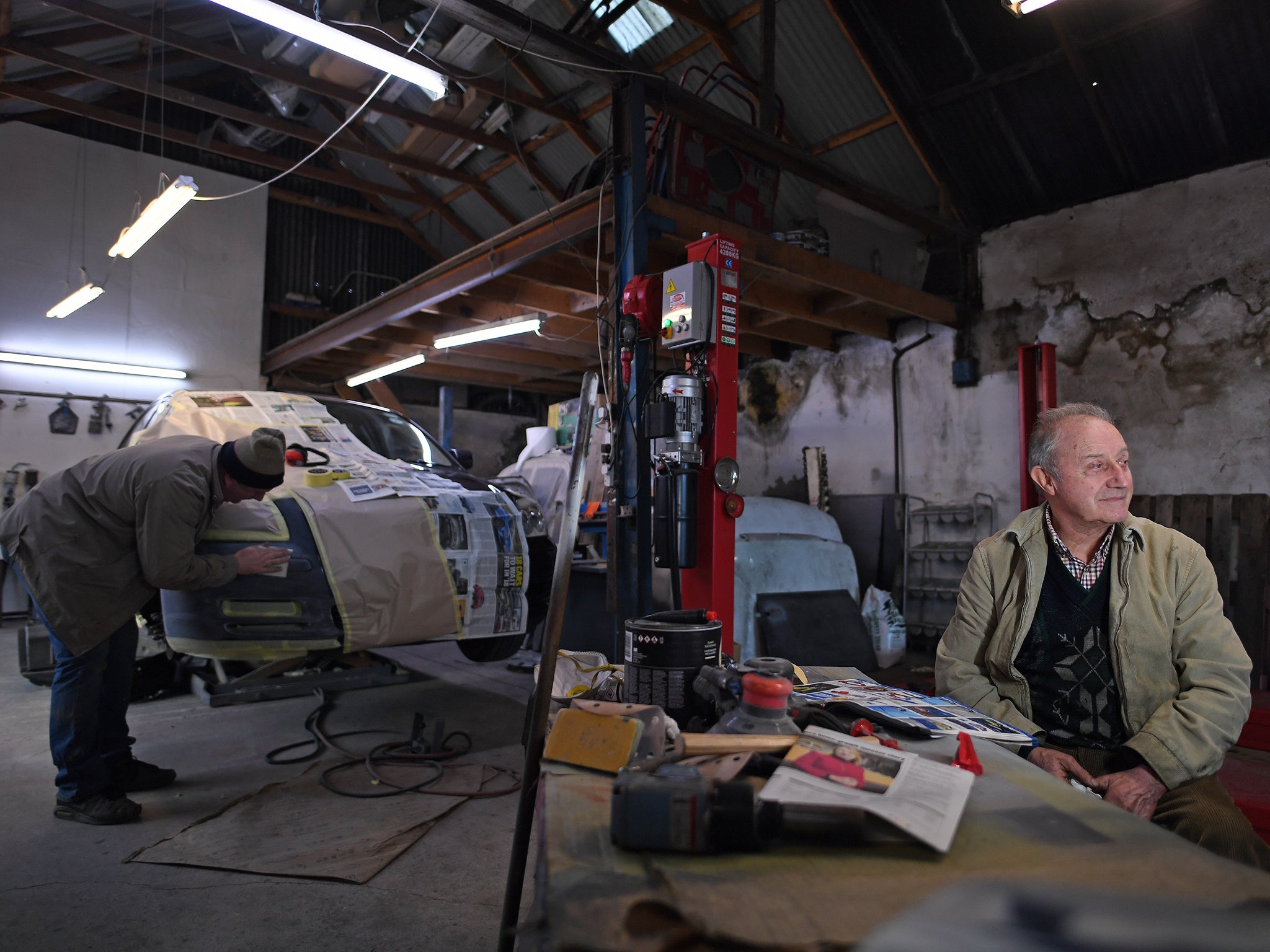

14. Engage in some cross-border arbitrage
Not smuggling, you understand, but legitimate trade exploiting anomalies in individual markets.
Watch more
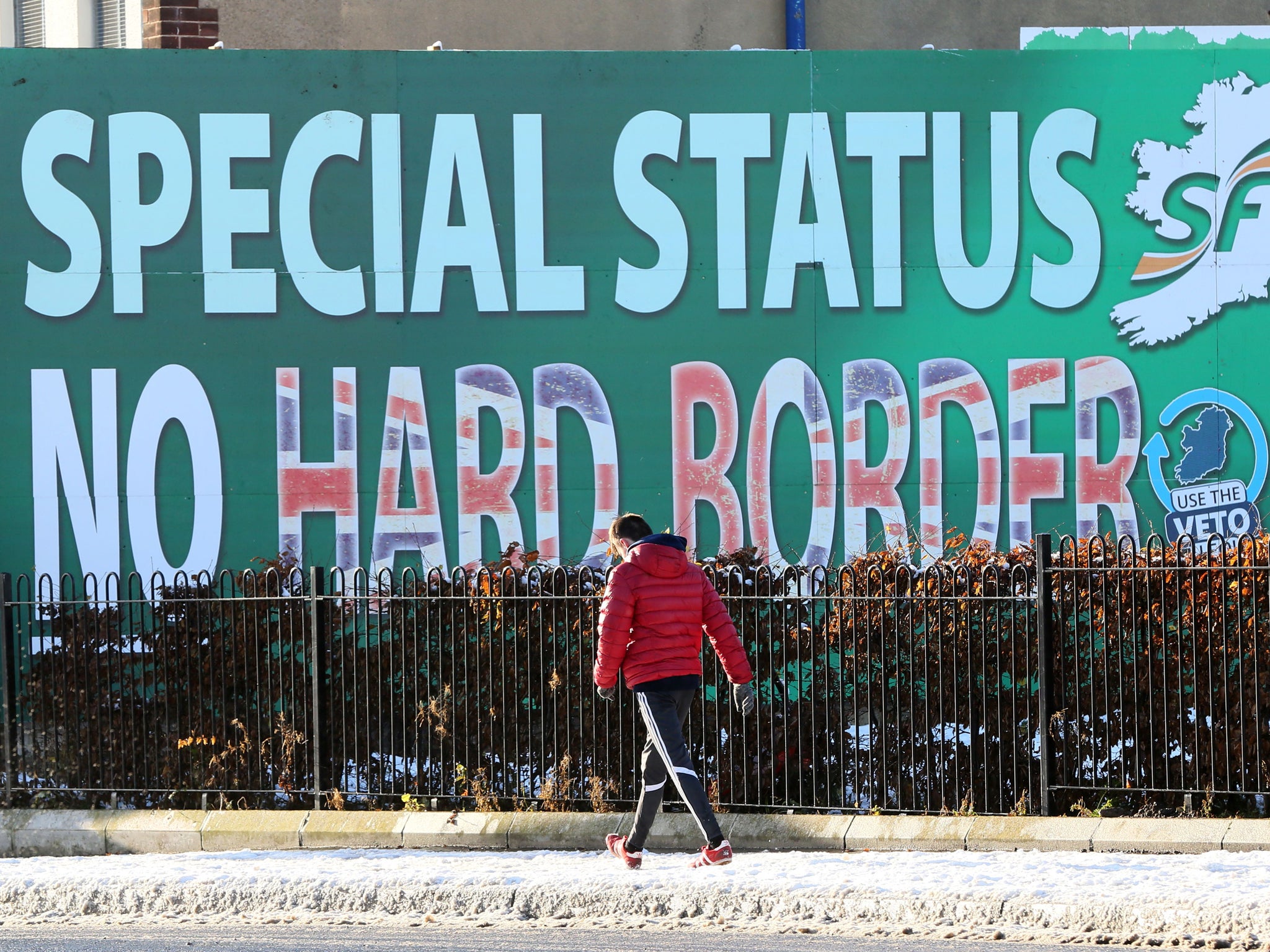 If the Troubles return post-Brexit, it won’t just be due to the border
If the Troubles return post-Brexit, it won’t just be due to the border
This may be of especial interest to people living near the Irish border, who will have to make the most of whatever is coming their way this spring. On the one hand, the prices of various goods will diverge because of movements in the exchange rate, as well as duty, taxation and regulation. The opportunities will be obvious. On the other hand, the EU or UK may decide to instal more stringent customs controls than before; it’s a sensitive subject. Or they could just forget about Ireland and leave things as they are, tolerating a certain amount of cross-border economic activity. Let’s be honest, no one knows.
15. Watch your phone bill
One of the greatest of the positive practical differences the EU Commission made in recent years was to cut mobile phone roaming rates among EU states. It is not yet clear whether that regulation will survive the Brexit process, although it may be caught by the UK withdrawal legislation.
16. Check your flight
Opinions, even at this relatively late stage, differ on how easy air travel will be post-Brexit. There are many EU regulations that govern passenger air transport (and freight for that matter). These may be overcome by UK-based airlines setting up subsidiary companies in the EU but carrying on with business as usual – or not. Once again, confusion is the most likely outcome, and you may wish to exercise caution about booking your next flight.
17. Learn to love your local uni
The future of European educational projects such as the Erasmus exchange scheme is under active discussion. More broadly, EU students can come and study in Britain at UK tuition fee rates, and that may not be so in future. By the same token, British students going to study in the EU may find themselves facing new fees and charges, as well as having to factor in the impact on their living costs of potential shifts to the exchange rate.
18. Beware the expat life
Just as there will be much uncertainty about the future of EU citizens in the UK, so there will be for those Britons living happily in EU countries, working or retired. There will be many issues to consider, some covered above: the cost of healthcare; taxes on property and income; the payment or uprating of the UK state pension; payment of local social security benefits; gyrations in the exchange rate, and the value of real estate across borders; remitted income from the UK; the right to bring other family members to come and live with you; voting rights and much else.
19. Watch out for the Rock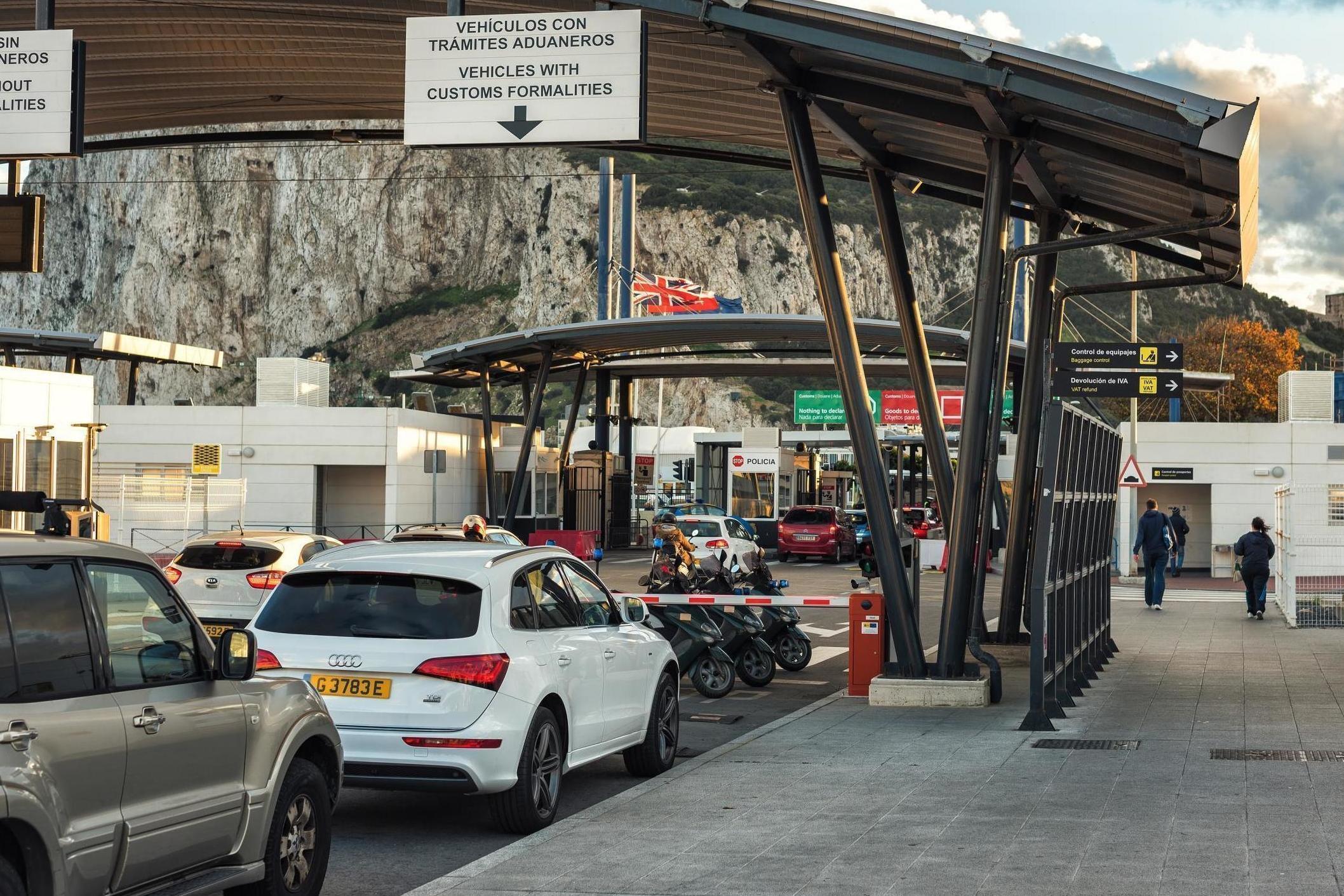
Life at the border could become more difficult for those living and working in Gibraltar
Sounds sinister – but not meant to be. Many Britons have links to Gibraltar, not just for financial reasons. Thus far an under-discussed aspect of Brexit, Gibraltar is another UK territory/EU land border that raises an awful lot of questions. The situation is made trickier because the EU has granted Spain a veto on future arrangements on Gibraltar. Nothing could change, perhaps; or “concessions” may only amount to the Spanish police having a role at the airport; or the Spanish could decide to make life at the border more difficult, even though many Spanish workers rely on Gibraltar for their livelihoods.
People's Vote march – demanding vote on final Brexit deal
Show all 30

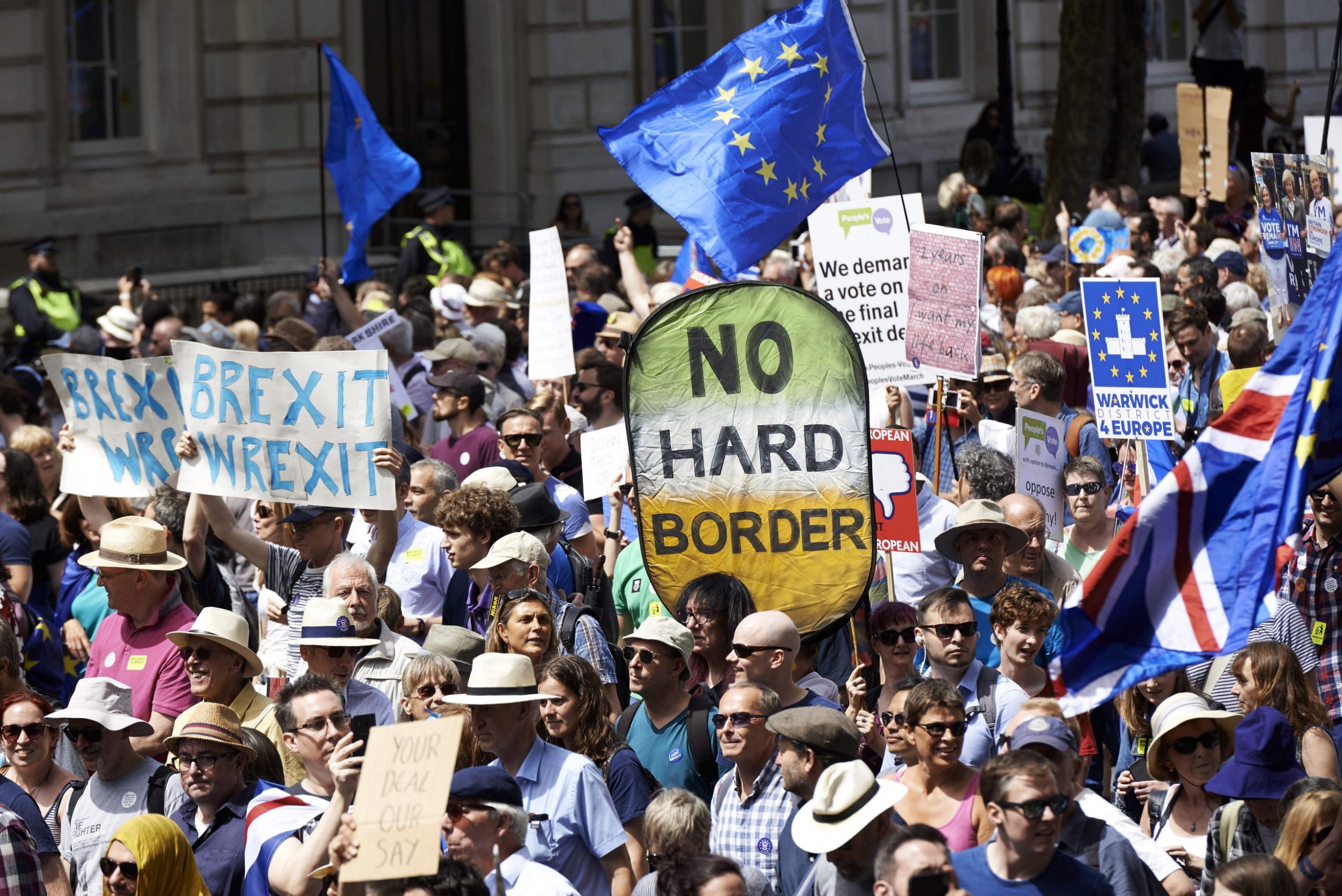


20. Don’t count on future working visits to the EU
By analogy with the US, if things really do get nasty then visa-free EU travel may be restricted to holidays and leisure. “Work”, even on a temporary assignment, may be treated differently, as it is by the States. Thus a special visa from the EU /Belgium may be required if, say, a journalist wishes to go to Brussels, ironically, to report on the EU’s activities. Likewise, an architect who wants to go Prague to supervise some construction work may need an EU/Czech permit. That’s because if the UK leaves the single market, British qualifications will not necessarily be recognised by EU states, as they tend to be now. Once again, a “worst case scenario” possibility that has not been much discussed.
* * *
So there we are then. With luck, Britain won’t leave the EU at all; certainly the pressure for a Final Say referendum is growing by the week. Or maybe we will do so in name only, or perhaps across a smooth, seamless transition that will take many months. Then again, Brexit hasn’t enjoyed much luck so far…
www.fotavgeia.blogspot.com
It may take more than an international driving licence and a garage full of loo roll to survive a hard Brexit, but it’s a start. Sean O’Grady prepares for the worst

With the best will in the world, and there may be a remarkable shortage of that in the coming months, a chaotic Brexit will make reliable delivery of a huge variety of items more tricky ( Isobel Orton )
In the two and a bit years since the EU referendum, successive waves of optimism and pessimism have crashed across the nation as hopes for an acceptable outcome rise and fall. We still don’t know what will be decided at upcoming “crunch” European Union summits – and the possibility remains that, even if a healthy dose of goodwill enables some kind of agreement to be cobbled together, Brexit will be messy.
Whatever else, undoing a half-century of integration is bound to cause some distortion. So to be prudent, you might want to “Brexit-proof” your life, just in case. Here is my far from exhaustive guide to some of the things you might (or might not) want to consider as departure day approaches.
1. Stock up on loo roll
What could be more essential to civilised life? Right now your local supermarket will happily sell you as many multipacks of Andrex (other leading brands are available) as you can transport home – but after 29 March 2019 there is a risk they may need to ration the supply. You see, some 50 per cent of the wood pulp used to make toilet rolls in UK factories comes into the country on lorries from Sweden, an EU member state. When the lorries get stuck on some ferry somewhere, the factories will soon run out of raw material. They could make up the shortfall with the wood pulp that comes in from Brazil, although apparently that stuff isn’t as comfortable to use. You have been warned.

Raab: Those fearing Brexit hit to car industry should show ‘mettle’
2. Order your new car now
Around 85 per cent of the UK’s new car market is accounted for by imports, and there are few vehicles you can buy that don’t have at least some European Union content – including some famous British brands. The Mini, for example, has a crankshaft that crosses the Chanel more than a dozen times as it reaches completion. The Jaguar E-Pace, an excellent sporting SUV, is made in Austria, while only the Astra from the Vauxhall range is made here – and again, it contains EU parts. On the other hand, all of BMW’s four-cylinder engines for the likes of the 3 Series are made in Birmingham…
Disruption to such automotive supply chains will make delays inevitable for virtually any brand. Tariffs on new car imports, if imposed by the UK, may add to the list price – if you can source the vehicle in the first place. Order now from stock and relax.
How to Brexit-proof your life
By the by, if you own a Fiat, Kia, Volkswagen, Nissan, Toyota, Skoda, Seat, Renault, Peugeot, Citroen, Vauxhall, Ford or virtually any other brand with parts from the EU, which includes “British” brands such as Mini, Bentley and Jaguar, then you might also want to buy a few spares. Just in case.
3. Apply for an international driving permit
This is fairly crucial if you want to be able to drive legally “over there”.
If you are fond of a proper brie, to offer a further random example, you know what to do...
One of the main benefits of EU membership we take for granted is the Europe-wide recognition of national driving licences. This could conceivably end if we “crash out” of the club. An international driving permit will allow you to drive legally throughout the EU; you’ll need to apply for it personally at a post office, for a reasonable fee of £5.50.
4. Lay down some French wines, German salami, Italian pasta, Polish vodka, Belgian chocolates, Spanish manchego, Greek olives…
With the best will in the world, and there may be a remarkable shortage of that in the coming months, a chaotic Brexit will make reliable delivery of these sorts of treats more tricky. There are British alternatives to many of them but not all, obviously. The commercial British olive, for example, is yet to make its appearance. If you are fond of a proper brie, to offer a further random example, you know what to do (no offence Somerset). You can freeze harder cheeses and stick some pickled or “brined” cheeses in the pantry. The delicatessen then – such a continental word – is your next shopping destination. You’ll at least enjoy it, but try not to eat it all at once. Get stockpiling.

Replenish your continental wine stocks (Rex)
5. Make sure your health insurance covers trips to the EU or EEA
The European Health Card and smooth reciprocal arrangements across the EU for member citizens in need of care could disappear. The safest solution might be to apply for some health insurance that will cover you in the EU for holidays and business trips.
6. Review your investments
Never a bad idea in any case. If you’re lucky enough to own some, including a (money purchase) pension pot, then be ready for the volatility a chaotic Brexit will bring. Currency movements will probably mean dollar, euro and other foreign currency assets will rise in value; you may also find changes in the tax treatment of your stocks, shares, bond and real estate as the UK and EU settle down to their new, less convergent relationship.
Fears of a collapse in sterling may be exaggerated but it is something you need to be aware of
Without going full Project Fear II, there may also be sharpish trends in inflation, interest rates and tax that you might not have foreseen. A change in the Bank of England bank rate, for example, will influence gilt and, thus, annuity rates for people who purchase one with their retirement pot (though of course you don’t have to go down the annuity route under the newish “pension freedoms”). This could be favourable, or not, depending on what happens, but you need to understand what might happen, so far as you can. As ever, do your own research and seek independent financial advice.
7. What, the gîte has to go?
The timeshare pad in Spain, the cute little conical cottage in Puglia, beach apartment in Cyprus, bolthole in Paris… all favourite British property investments, and hitherto unthreatened by discriminatory taxation or property laws – but perhaps no longer.
There might also be some effect on the popularity of your place if you let it out to UK holidaymakers, many of who will obviously be stuck in Blighty eating the cheese and wine reserves they’ve built up (see point 4).

Holiday homes abroad will be affected by Brexit... but will you gain or lose out? (Getty)
Post-Brexit, there may be less certainty that British citizens, resident or not, will enjoy the exact same property rights and tax equality they do now. On the other hand, if the euro, Bulgarian lev or Croatian kuna strengthens against the pound, other things being equal, then the sterling-equivalent value of your real estate may go up.
There again, fears of a collapse in sterling may be exaggerated but it is something again you need to be aware of.
8. Double-check the family tree
Your ancestry, and one or two other conditions, might help you apply for a passport of another EU member state, should you want one.
Don’t forget that although dual citizenship is permitted in the UK, it isn’t available in all EU states, so you need to check; if necessary, make a choice.
Usually some form of parentage qualification can deliver a new passport from an EU nation – though a substantial investment can also secure one (see point 6). You will usually need to register your birth, even if it was in Britain, with the country you wish to become a citizen of. Here are a few of the basics to get the ball rolling (though there is much devilish bureaucracy in the detail so beware)...
Watch more
 Surge in British people obtaining EU citizenship, new data reveals
Surge in British people obtaining EU citizenship, new data revealsItalian citizenship: by being born to an Italian parent and, in some circumstances, via an Italian grandparent. Or by naturalisation – at least 10 years’ residency.
Irish citizenship: yours if some of your parents or grandparents were Irish or, under some circumstances, by marriage to an Irish citizen. Naturalisation by residency will also get you an Irish passport.
Spanish citizenship: for British expats it is possible to obtain Spanish citizenship via residency, but you will have to surrender your British citizenship – toss a euro for it. Alternatively, once you have lived in Spain for five uninterrupted years, you can apply for an “EU long-term residence permit”, which enables you to work and live in Spain on the same basis as Spanish citizens. You can also apply if you have a Spanish father or mother.
Cypriot citizenship: been married to a Cypriot for at least three years? Time to celebrate! Cypriot parentage will also do the trick, as will “citizenship by investment” – a property worth at least €500,000.
It might be prudent to make sure your next prescription gets filled in good time
Maltese citizenship: naturalisation/residency for five years should do it. But here too there is a chance of flashing the cash via the Malta Individual Investor Programme – at least €500,000 in various combinations of Maltese government bonds, and the National Development and Social Fund. Five years of marriage to a Maltese citizen is another route.
Most EU and EEA countries (eg Norway, Switzerland) are members of the Schengen scheme, meaning no border checks in any case for EU citizens.
9. Order your European-made fridge, washing machine, dishwasher…
Much the same arguments apply to consumer goods as they do to cars, though the prevalence of Chinese-made products (sometimes with European brand names) means that the possible delays and inconvenience are somewhat less for this class of goods. However, if you really desire a German-made Miele washing machine you might be wise to make a move on one now.
10. Buy your foreign currency now
I don’t have a Brexit crystal ball any more than anyone else but it seems reasonable to conclude that a hard Brexit, the nearer it gets, could well bring about a hefty depreciation of sterling – as happened the morning after the 2016 referendum, when the pound lost about 15 per cent of its external value (though it did gradually recover). Then again, whenever there is a wave of optimism about the talks, sterling tends to rise. The pound would be expected to slide against all the major currencies in an unexpectedly chaotic scenario, so if you wish to be cautious you could get your euros, dollars, roubles and rupees in now.
11. Stock up on medicines
Assuming they have a long shelf life, that is. This is one of the most vexed of all the post-Brexit questions, about which we have heard a lot from politicians. All one can say now on the question of imported medicines is that they will, under UK law, be OK to use in Britain if they’re already EU approved, as we will adopt all the European Union regulations from day one of Brexit. However, like so many other goods, there may be delays in transportation, and it might be prudent to make sure your next prescription gets filled in good time. The UK has a competitive pharmaceuticals sector, for now there is a reasonable chance that your pills and potions can be sourced by the pharmacy. Keep a weather eye open for updates.
Watch more
 UK’s biggest insulin supplier stockpiling four-month supply
UK’s biggest insulin supplier stockpiling four-month supply12. Au pairs, tenants and employees: let them go now or hang on for dear life
Without a legally sound withdrawal agreement, the rights and status of EU citizens living and working in the UK will need to be clarified, and there is no sign of that yet. Some may decide to leave the UK, even after many years here, which will inevitably cause great disruption. You may therefore wish to make some contingency arrangements of your own if, say, you rent a house to a Slovak family, have a French au pair or employ workers from Poland. The short story is that they may be hard to replace.
13. Take advantage of “the exciting opportunities” offered by Brexit
Joking aside, there will be some potential benefits for the new “global Britain”. If you’re the entrepreneurial type, you might well want to seek out new trading opportunities in China or India, as (or if) tariffs and other restrictions that are now levied on goods and services in either direction are lifted. That could happen as a result of unilateral UK action or, in the longer run, through the kind of ambitious trade deals ministers talk so frequently about.
All in all, now may be a good moment to start that business advising Indian students about how to get a visa and apply for a course at a British university. Provided of course the government finds such an arrangement with India that is compatible with its migration targets.
Brexit threatens life on the Irish border: in pictures
Show all 15




14. Engage in some cross-border arbitrage
Not smuggling, you understand, but legitimate trade exploiting anomalies in individual markets.
Watch more
 If the Troubles return post-Brexit, it won’t just be due to the border
If the Troubles return post-Brexit, it won’t just be due to the borderThis may be of especial interest to people living near the Irish border, who will have to make the most of whatever is coming their way this spring. On the one hand, the prices of various goods will diverge because of movements in the exchange rate, as well as duty, taxation and regulation. The opportunities will be obvious. On the other hand, the EU or UK may decide to instal more stringent customs controls than before; it’s a sensitive subject. Or they could just forget about Ireland and leave things as they are, tolerating a certain amount of cross-border economic activity. Let’s be honest, no one knows.
15. Watch your phone bill
One of the greatest of the positive practical differences the EU Commission made in recent years was to cut mobile phone roaming rates among EU states. It is not yet clear whether that regulation will survive the Brexit process, although it may be caught by the UK withdrawal legislation.
16. Check your flight
Opinions, even at this relatively late stage, differ on how easy air travel will be post-Brexit. There are many EU regulations that govern passenger air transport (and freight for that matter). These may be overcome by UK-based airlines setting up subsidiary companies in the EU but carrying on with business as usual – or not. Once again, confusion is the most likely outcome, and you may wish to exercise caution about booking your next flight.
17. Learn to love your local uni
The future of European educational projects such as the Erasmus exchange scheme is under active discussion. More broadly, EU students can come and study in Britain at UK tuition fee rates, and that may not be so in future. By the same token, British students going to study in the EU may find themselves facing new fees and charges, as well as having to factor in the impact on their living costs of potential shifts to the exchange rate.
18. Beware the expat life
Just as there will be much uncertainty about the future of EU citizens in the UK, so there will be for those Britons living happily in EU countries, working or retired. There will be many issues to consider, some covered above: the cost of healthcare; taxes on property and income; the payment or uprating of the UK state pension; payment of local social security benefits; gyrations in the exchange rate, and the value of real estate across borders; remitted income from the UK; the right to bring other family members to come and live with you; voting rights and much else.
19. Watch out for the Rock

Life at the border could become more difficult for those living and working in Gibraltar
Sounds sinister – but not meant to be. Many Britons have links to Gibraltar, not just for financial reasons. Thus far an under-discussed aspect of Brexit, Gibraltar is another UK territory/EU land border that raises an awful lot of questions. The situation is made trickier because the EU has granted Spain a veto on future arrangements on Gibraltar. Nothing could change, perhaps; or “concessions” may only amount to the Spanish police having a role at the airport; or the Spanish could decide to make life at the border more difficult, even though many Spanish workers rely on Gibraltar for their livelihoods.
People's Vote march – demanding vote on final Brexit deal
Show all 30




20. Don’t count on future working visits to the EU
By analogy with the US, if things really do get nasty then visa-free EU travel may be restricted to holidays and leisure. “Work”, even on a temporary assignment, may be treated differently, as it is by the States. Thus a special visa from the EU /Belgium may be required if, say, a journalist wishes to go to Brussels, ironically, to report on the EU’s activities. Likewise, an architect who wants to go Prague to supervise some construction work may need an EU/Czech permit. That’s because if the UK leaves the single market, British qualifications will not necessarily be recognised by EU states, as they tend to be now. Once again, a “worst case scenario” possibility that has not been much discussed.
* * *
So there we are then. With luck, Britain won’t leave the EU at all; certainly the pressure for a Final Say referendum is growing by the week. Or maybe we will do so in name only, or perhaps across a smooth, seamless transition that will take many months. Then again, Brexit hasn’t enjoyed much luck so far…
www.fotavgeia.blogspot.com

Δεν υπάρχουν σχόλια:
Δημοσίευση σχολίου